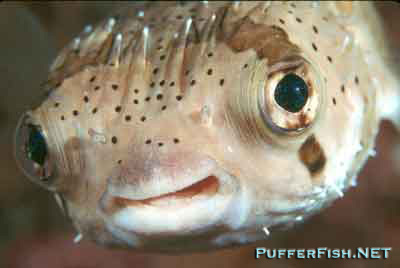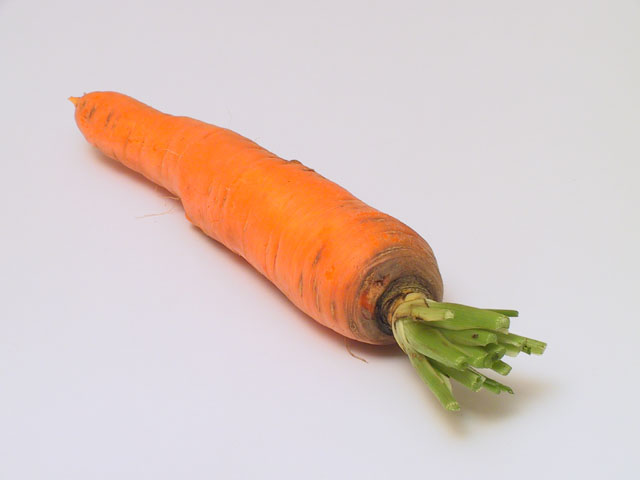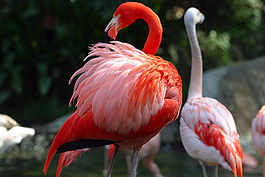
- •S. Seiffulin kazakh agro technical university
- •Astana 2011
- •Introduction
- •Exercises
- •Cause damage hold invite make overtake show surround translate write
- •5. Write questions using the passive. Some are present and some are past.
- •6. Put the verb into the correct form, present simple or past simple, active or passive.
- •7. Rewrite these sentences. Instead of using somebody, they, people etc., write a passive sentence.
- •Passive Voice
- •Perfect infinitive
- •Present continuous
- •Sources of food
- •Exercises
- •1. Translate these interesting facts about food into your own language
- •6. Rewrite these sentences. Instead of using somebody or they etc., write a passive sentence.
- •7. Make sentences from the words in brackets. Sometimes the verb is active, sometimes passive.
- •Food from animals
- •Exercises
- •2. Make 10 test questions with 5 answers about this text and try to use Passive Voice
- •3. Retell the text
- •4. Find the right answer Test . Passive Voice
- •Unit 2 Text: The food of the Nomad Grammar: Question tags
- •Exercises
- •I. Choose the right variant
- •II. Make five questions about this text
- •2. Put a question tag on the end of these sentences
- •3 Read the situation and write a sentence with a question tag. In each situation you are asking your friend to agree with you.
- •4 In these situations you are asking for information, asking people to do things etc.
- •Exercises
- •1. Rewrite the sentences using Reported speech
- •2. Retell the text using reported speech
- •3. Yesterday you met a friend of yours, Steve. You hadn’t seen him for a long time. Here are some of the things Steve said to you:
- •Exercises
- •The following sentences are direct speech. Rewrite the sentences using reported speech.
- •Here are some things that Sarah said to you:
- •Complete the sentences with say or tell (in the correct form). Use only one word each time
- •The following sentences are direct speech
- •Reported Speech
- •Exercises
- •1. Write 10 questions about this text
- •3. Make a new sentence from the question in brackets.
- •4 You are making a phone call. You want to speak to Sue, but she isn't there. Somebody else answers the phone. You want to know three things:
- •Grammar Reported Speech (questions)
- •Grammar Revision. Passive Voice, Question tags, Reported Speech
- •I variant
- •II variant
- •III variant
- •IV variant
- •Unit 4 Text: The food industry
- •The food industry
- •Exercises
- •Translate the text into your own language and learn by heart the new words.
- •Now answer these questions:
- •Complete each sentence with one of the following verbs (in the correct form): answer apply be forget listen live lose make read try use
- •Complete the sentences so that they mean the same as the first sentence. Use -ing.
- •Use your own ideas to complete these sentences. Use -ing.
- •Unit 5 Text: History of Chocolate
- •Short History of Chocolate
- •Exercises
- •Read and translate the text.
- •Now answer these questions
- •Look at the picture and write what you see and how it has been made. Use gerund or infinitive.
- •Food processing. Translate the text into your own language
- •Food packaging. Read and retell the text.
- •Complete each sentence with a suitable verb.
- •Put the verb into the correct form, to ... Or -ing.
- •Make a new sentence using the verb in brackets.
- •Unit 6 Text: Food transportation and food marketing
- •Food transportation
- •Grammar:
- •(I want you to ... Etc.) want ask help would like
- •Make and let
- •Exercises:
- •2. Complete each second sentence so that the meaning is similar to the first sentence.
- •Unit 7 Text: Problems with frozen foods
- •Problems with frozen foods
- •1 Put the verb into the correct form, -ing or to ... . Sometimes either form is possible.
- •2 Here is some information about Tom when he was a child.
- •3 Complete each sentence with a verb in the correct form, -ing or to ... .
- •Enjoy finish imagine admit avoid feel like (infml) (don't)mind can't stand give up deny
- •Manage refuse promise offer
- •Exercises:
- •1. Underline the correct word(s). Be careful: in two sentences, both possibilities are correct.
- •2 Complete part (c) of each sentence in a suitable way, starting with a verb.
- •3 Read the story and answer the questions below.
- •Unit 8 Text: Interesting Facts about British Food Grammar: Conditional sentence 1
- •Exercises:
- •1 Complete the sentences using the verbs in brackets. All the sentences are about the future. Use Will/won't or the present simple (I see / he plays / it is etc.).
- •2 Make one sentence from two:
- •3 Read the situations and complete the sentences.
- •4 Put in when or if.
- •Translate the text into your own language
- •Interesting Facts about British Food: English Pub Food
- •English Cream Teas
- •Unit 9 Text: 10 Poisonous Foods we like to eat Grammar: Conditional sentence 2 (If I knew ... I wish I knew ...)
- •Exercises:
- •1 Put the verb into the correct form.
- •2 Write a sentence with if ... For each situation.
- •Write sentences beginning I wish ... .
- •4 Write your own sentences beginning I wish ... .
- •Potatoes
- •Tomatoes
- •Almonds
- •Cherries
- •Mushrooms
- •Elderberry
- •Rhubarb
- •Castor Oil
- •Pufferfish
- •Unit 10 Text: Discover a few interesting facts that You May Not Know. Grammar: Conditional sentence 3 (If I had known I wish I had known)
- •Grammar: Conditional sentence (3)
- •If I had known you were in hospital, I would have gone to see you.
- •Exercises:
- •1 Put the verb into the correct form.
- •2 For each situation, write a sentence beginning with If.
- •3 Imagine that you are in these situations. For each situation, write a sentence with I wish.
- •4. Translate the sentences into your own language.
- •Interesting Food Facts
- •Unit 11 Text: History of Tomatoes Grammar: Phrasal verbs: form and meaning
- •1 Complete the phrasal verbs. Remember to put the verb into the correct form.
- •2 Complete these sentences in a logical way.
- •3 Look at the dictionary entry for 'go off, and match the meanings with the sentences below.
- •4 Correct any mistakes with word order in these sentences. Be careful: some are correct.
- •5 Make these texts more informal by changing the underlined verbs to phrasal verbs.
- •6 Fill the gaps to complete the phrasal verbs in these sentences.
- •7 Complete these sentences in a logical way.
- •History of Tomatoes
- •Revision for all materials
- •1 Variant
- •2 Variant
- •3 Variant
- •4 Variant
- •5 Variant
- •6 Variant
- •7 Variant
- •Additional texts Texts for reading and retelling popcorn
- •Popcorn Balls
- •The Healthy Eating Pyramid includes the following: Whole Grains
- •Healthy Fats and Oils
- •Vegetables and Fruits
- •Nuts, Seeds, Beans, and Tofu
- •Fish, Poultry, and Eggs
- •Dairy (1 to 2 Servings Per Day) or Vitamin d/Calcium Supplements
- •Use Sparingly: Red Meat and Butter
- •Multivitamin with Extra Vitamin d (For Most People)
- •Optional: Alcohol in Moderation (Not for Everyone)
- •Kazakhstan’s cuisine
- •Food and drink
- •Food and drink based on milk
- •Dishes from cereals
- •Cold first courses
- •Hot first courses
- •Second courses
- •Bread and pasta
- •Desserts
- •Meals in Britain (1)
- •Vocabulary:
- •Meals in Britain (2)
- •British Cuisine
- •Questions:
- •Vocabulary:
- •Spirits in Ireland
- •Questions:
- •Traditional American Food
- •The Story of “McDonald's” and “Coca-Cola”
- •World Food Kazakhstan: a Focus on the Food Industry
- •About Kazakhstan trade recovering in kazakhstan
- •A review of the food and beverage market in kazakhstan
- •Kazakhstan to Launch Its Own Infant Food Production
- •Kazakhstan to Develop Winemaking
- •Source: Kazakhstan Today
- •Kazakhstan: a 200-Hectare Food Terminal Being Built Near Astana
- •Halal-Industry Association Established in Kazakhstan
- •Second Record Bumper Harvest over Last Five Years in Kazakhstan – About 21 Million Tons in Store – Nazarbayev
- •Examination tests test-1
- •Irregular verbs
- •Bibliograhpy
- •Content
Pufferfish

Only the flesh of the pufferfish is considered to be eatable since it is believed to contain the poison in far less concentrations. It is in fact, considered a delicacy in many parts of the world like Japan or Korea. Such is the poisonous nature of pufferfish, referred to as fugu in Japan, that chefs dealing with it need to undergo special training that spans from 2 to 3 years and are required to clear a set of tests so as to obtain the mandatory certificate of practice. Apart from a written test, the chef will have to demonstrate his cutting abilities with him actually consuming the parts that he has cut forming the culminating part of the test. The tests are demanding, so much that only about 30% of the applicants make it through. This does not mean that the rest die due to consumption of fugu fish since they can fail in the earlier rounds as well. The poison causes a slight tingling sensation of the mouth and it forms the only food that the Emperor of Japan is legally barred from eating, keeping in mind his safety and health concerns.
Unit 10 Text: Discover a few interesting facts that You May Not Know. Grammar: Conditional sentence 3 (If I had known I wish I had known)
Read and translate the facts
Discover a few interesting facts that You May Not Know.
Did you know that the herring is the most widely eaten fish in the world.
Ketchup was sold in the 1830s as medicine.
A can of spam is opened every 6 seconds. Before Internet age, spam wasn't unsolicated email, it was of course a luncheon meat. It is so resistant to spoilage that, if kept in the closed can, it may well outlast eternity and will certainly live longer than human.
Almonds are members of the peach family.

Grape explode when you put them in the microwave.

Carrots were first grown as a medicine (not a food). The ancient Greeks called carrots "Karoto".

If you add half a glass of lemonade to a vase of flowers, the bubbles prolong the life of the flowers by up to a week. In Great Britain alcoholic lemonade is outselling premium bottled lagers.
In South Africa, termites are often roasted and eaten by the handful, like popcorn.
F lamingo
tongues were a common delicacy at Roman feasts.
lamingo
tongues were a common delicacy at Roman feasts.
If you add half a glass of lemonade to a vase of flowers, the bubbles prolong the life of the flowers by up to a week. In Great Britain alcoholic lemonade is outselling premium bottled lagers.
In South Africa, termites and ants are often roasted and eaten by the handful, like popcorn.
Grammar: Conditional sentence (3)
Study this example situation:
Last month Gary was in hospital for a few days. Rachel didn't know this, so she didn't go to visit him. They met a few days ago. Rachel said:
If I had known you were in hospital, I would have gone to see you.
Rachel said: If I had known you were in hospital .... This tells us that she didn't know he was in hospital.
We use if + had + verb 3 ... to talk about the past (if I had known/been/done etc.):
I didn't see you when you passed me in the street. If I'd seen you, of course I would have said hello, (but I didn't see you)
I decided to stay at home last night. I would have gone out if I hadn't been so tired, (but I was tired)
If he had been looking where he was going, he wouldn't have walked into the wall.
(but he wasn't looking)
The view was wonderful. If I'd had a camera with me, I would have taken some
photographs, (but I didn't have a camera)
Compare:
I'm not hungry. If I was hungry, I would eat something, (now)
I wasn't hungry. If I had been hungry, I would have eaten something, (past)
Do not use would in the if part of the sentence. We use would in the other part of the sentence:
If I had seen you, I would have said hello, (not If I would have seen you)
Note that 'd can be would or had:
П If I'd seen you, (I'd seen = I had seen)
I'd have said hello. (I'd have said = I would have said)
We use had (done) in the same way after wish. I wish something had happened = I am sorry that it didn't happen:
I wish I'd known that Gary was ill. I would have gone to see him. (but I didn't know)
I feel sick. I wish I hadn't eaten so much cake. (I ate too much cake)
Do you wish you had studied science instead of languages? (you didn't study science)
Do not use would have ... after wish:
The weather was cold while we were away. I wish it had been warmer, (not! wish it would have been)
Compare would (do) and would have (done):
If I had gone to the party last night, I would be tired now. (I am not tired now – present)
If I had gone to the party last night, I would have met lots of people. (I didn't meet lots of people - past)
Compare would have, could have and might have:
we would have gone out. we could have gone out.
If the weather hadn't been so bad, \ (= we would have been able to go out)
we might have gone out.
(= perhaps we would have gone out)
